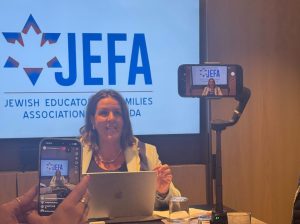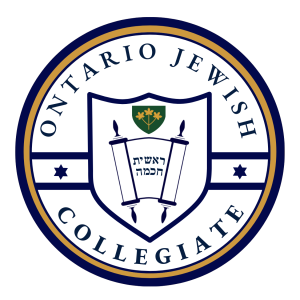 TORONTO — Andrea W. is taking her son who has learning disabilities out of the Jewish day school system and putting the nine-year-old in a private school that caters to students like him.
TORONTO — Andrea W. is taking her son who has learning disabilities out of the Jewish day school system and putting the nine-year-old in a private school that caters to students like him.
Debbie Gladstone, executive administrator, Mercaz
“I guess we’re one of the first casualties,” she told The CJN, referring to the decision earlier this year to close the Dr. Abraham Shore She’arim Hebrew Day School 27 years after its opening.
She’arim, which last year had 75 students, served children from grades 1 through 8 with learning disabilities, attention deficit hyperactivity disorder, and mild forms of autism.
Andrea, who asked that her real name not appear in print, said it recently became apparent that her son “needs a proper program” above and beyond the extra help he was already getting at his school.
Because he was not already a student at She’arim, he was not eligible for the new program being set up to serve the needs of former She’arim students at Associated Hebrew Schools.
Similar programs, each of which constitutes, in effect, a school within a school, will also be running at Netivot Hatorah Day School (for middle school students) and at the Anne and Max Tanenbaum Community Hebrew Academy of Toronto (for Grade 8 students).
Of She’arim’s 50 students who were not graduating, 15 have enrolled in TanenbaumCHAT’s Grade 8 program (along with three students who were not at She’arim). Fourteen will be at Associated, and seven at Netivot.
“We have placed over 70 per cent of She’arim children who need to be placed at host schools, and we’re very happy with that,” said UJA Federation of Greater Toronto spokesperson Howard English.
Or Haemet Sephardic School is taking at least one former She’arim student, English said. So is Eitz Chaim Day School.
“They wouldn’t let them in unless they could accommodate them,” English said.
The schools hosting the post-She’arim programs will provide art and music therapy, as She’arim did, English said.
The three programs are being developed this summer, said Debbie Gladstone of the federation’s Centre for Enhancement of Jewish Education (formerly its Board of Jewish Education, now known informally as the Mercaz).
Gladstone, who was the director of the now-defunct Tikun Chaim – the Mercaz’s special education division, which closed a year ago and whose services have been redistributed within the organization – now has the title of executive administrator and is involved in various projects.
As far as the other Jewish day schools are concerned, they “are able to provide support on a much larger spectrum than they could before,” said Gladstone, who noted that some students still need help above and beyond that.
“There’s a lot happening in the schools today that didn’t exist even five years ago.”
For students who are entering the three post-She’arim programs, the segregated nature of the programs will give the staff time to work with them, get to know them and see what areas they can be mainstreamed in, as well as to develop individual education plans, she added.
Tuition will be the same as it was at She’arim, because “the services will be comparable, and the support will be comparable,” English said. The actual cost, which is being partially subsidized by federation, is “considerably more than tuition,” he said.
The new programs are in place for the coming year, and “the objective is for them to be able to continue,” he added.
“I don’t know that She’arim would have been the right place [for my son],” mused Andrea, who said she regrets having to pull out of the Jewish school system. “[But] when you’re in the Jewish day school system and they already talk about not losing anybody, it’s pretty sad that we’re gone.”
She is also not sure how to continue her son’s Jewish education now. “He doesn’t fit in to the regular [supplementary school] program,” because he has a more intensive Jewish background, she said.
Earlier this summer, Andrea was looking more seriously at Jewish overnight camps. “Maybe we would have waited one more year, but it’s really important to us that he’s involved.”
The added financial burden of camp, coupled with the loss of a subsidy that will not be matched at a private school, is also a concern, Andrea said.






